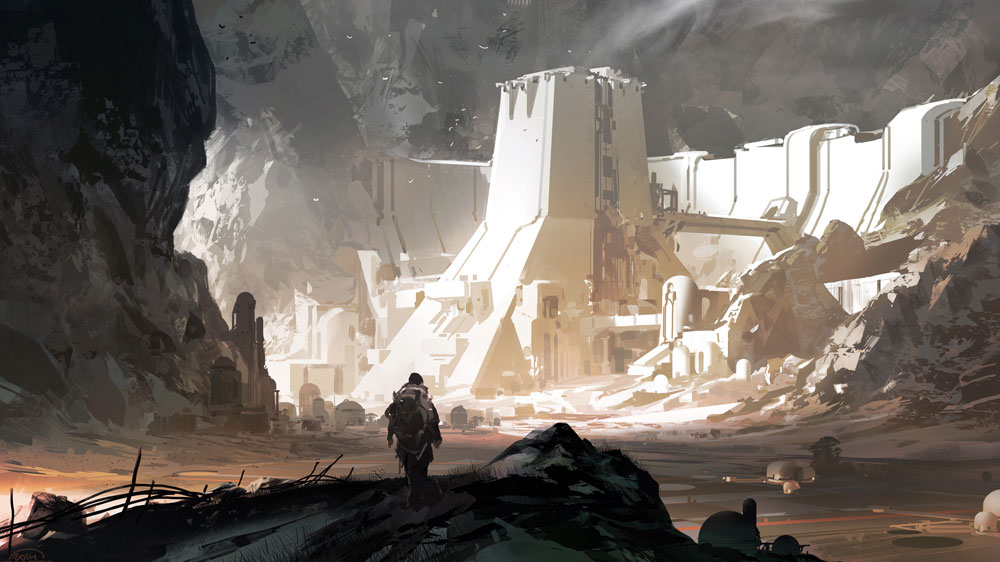Image by Sparth
I love a good apocalypse as much as the next person. One of my favorites is Paolo Bacigalupi’s water scarcity sci-fi “The Water Knife”. In the novel the western US is quickly turning back into a desert and states have devolved into warring nation states, fighting over water rights. It’s a compelling story and in light of the current trends in climate change and politics, feels plausible. On the other hand, we have people pushing more ambivalent narratives, like the post-scarcity narratives of Doctorow’s Walkaway, or the amazing community focused world building of John Scalzi’s Metatropolis collection. Both feature apocalyptic components but offer more hopeful visions of people organizing in a world where ubiquitous cheap tech enables more collaborative communalist and decentralized modes of living. I find these very inspiring. I should probably write more about Metatropolis specifically since it’s wonderful and I keep coming back to it’s ideas. But both worlds are about communalist societies arising amidst the wreckage of eco-disaster, wealth inequality and surveillance capitalism. So bittersweet to say the least.
Then we have the more full blast utopianism of someone like the brilliant Iain M. Banks and his Culture series of loosely linked novels, where we visit a utopian future in which AI, matter-as-software and limitless energy have created fully automated luxury communism. Everyone lives wonderfully and does whatever they want, against the backdrop of the cosmos. Banks is a wonderful writer and the books are funny, sometimes harrowing, cracklingly intelligent and tremendously enjoyable. Since Banks lamentably early and fairly recent passing in 2013 I’ve revisited almost all of them and continue to draw great pleasure from visiting his worlds. This thread of post-scarcity techno utopia has been picked up by the technological masters of the universe of Silicon Valley, with people like Elon Musk claiming Banks as an influence, and even citing him in discussions about his personal politics and about socialism. I find this baffling, but I digress. One of the people tugging on this thread of techno utopianism is Peter Diamandis who is the founder of the X Prize Foundation and a cofounder of the science fictionally named Singularity University.
Diamandis believes that because science and engineering have all become digitized the pace of technological progress should now follow Moore’s law, the observation that the number of transistors in a dense integrated circuit doubles about every two years. This doubling of computation capacity unlocks and accelerates the pace of technological change, which creates a kind of positive feedback loop. The faster the underlying computational power increases, the faster the pace of progress increases. And if we observe recent history with any kind of detachment, looking for example at the difference between the pre and post smartphone eras, we can see that each of these leaps forward in technical capacity lays the basis for a whole explosion of technological advances which leverage it. I recently watched a documentary on Diamandis which I’ll link to in which they show a kind of cross section of tech projects in multiple areas, from increasingly powerful low cost, thin and flexible solar panels to a farm which grows food in the Sahara by using solar energy to desalinate sea water. The implication is, we may be approaching an era in which energy and computational power become ubiquitous and unlimited. With these two come the capacity to learn, produce food to feed the entire world, decentralize centralized networks and usher in a radically different reality.
So which is more believable? I can feel in my head a fight for the narrative of the future. Is it the unbounded techno utopia of Banks’ Culture? Or the feudalist cutthroat scrabbling over water depicted in Bacigalupi’s novel? Or some combination of both? It’s fully possible that the rich develop this technology, hoard it for themselves and retreat into fortresses while the rest of the world falls into a dark age, or that we go through some kind of more complex soft apocalypse transition, or somehow we are able to organize and overthrow the oligarchs who currently sit atop the world and experience a new era of distributed prosperity. The mind loves a binary, and so there’s always the temptation to collapse into one narrative or the other. In fact we may well see some version of all of the above, unequally distributed between the global north and south for example, or across lines of class, or nation, or education. As Gibson quips, the future is here but unevenly distributed. At the moment I’m trying to keep it all in my mind, and not succumb to the numb fatalism of apocalypse or the giddy utopianism of the technocrats. We’ll see what happens.





